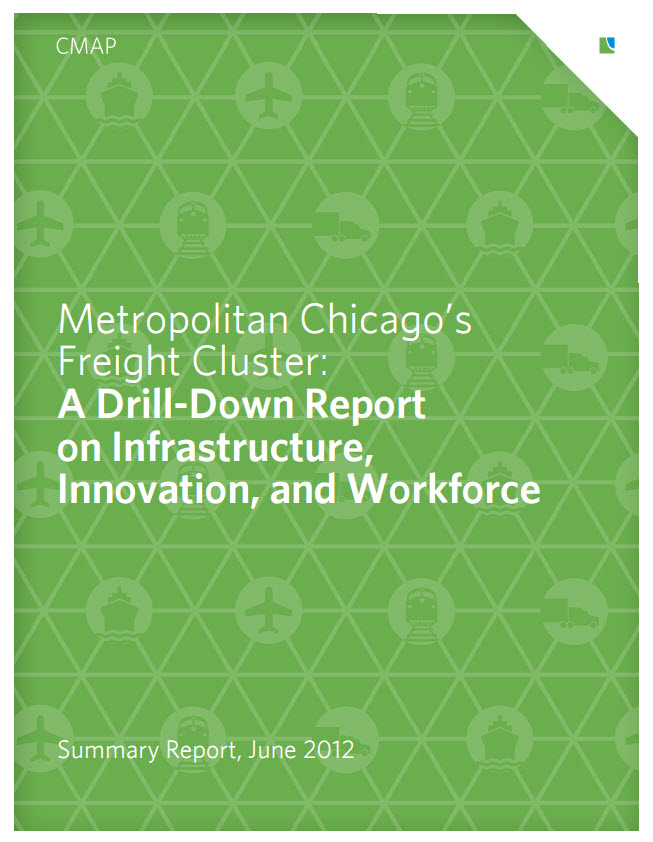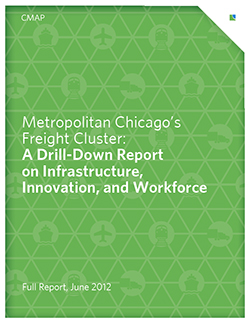Metropolitan Chicago remains the preeminent freight hub of North America -- and global freight demand is only expected to grow. The region sits at the intersection of rail and intermodal networks, international airports, transcontinental roadways, and connections to the St. Lawrence Seaway, Great Lakes, and Mississippi River systems. ON TO 2050 and its predecessor GO TO 2040 underscore the importance of these economic strengths and recommend strategically organizing the region around its existing industry clusters -- including freight -- to better compete in national and international markets. Our region's continued competitiveness will depend on coordination among freight carriers (truck, rail, water, air), public agencies (State of Illinois, counties, municipalities, CMAP), and civic organizations.
This 2012 drill-down report (PDF) analyzes freight, one of the Chicago region's strongest specializations, to identify major issues affecting this cluster's competitive advantage in the 21st Century. The report identifies key challenges and opportunities influencing future cluster growth. Focusing on infrastructure, workforce, and innovation, it concludes with a set of regional strategies to better align resources and investments with the needs of the freight cluster. A companion technical document (PDF) provides in-depth analysis as well as corresponding citations to support the conclusions of the summary report. Read more in this press release.

